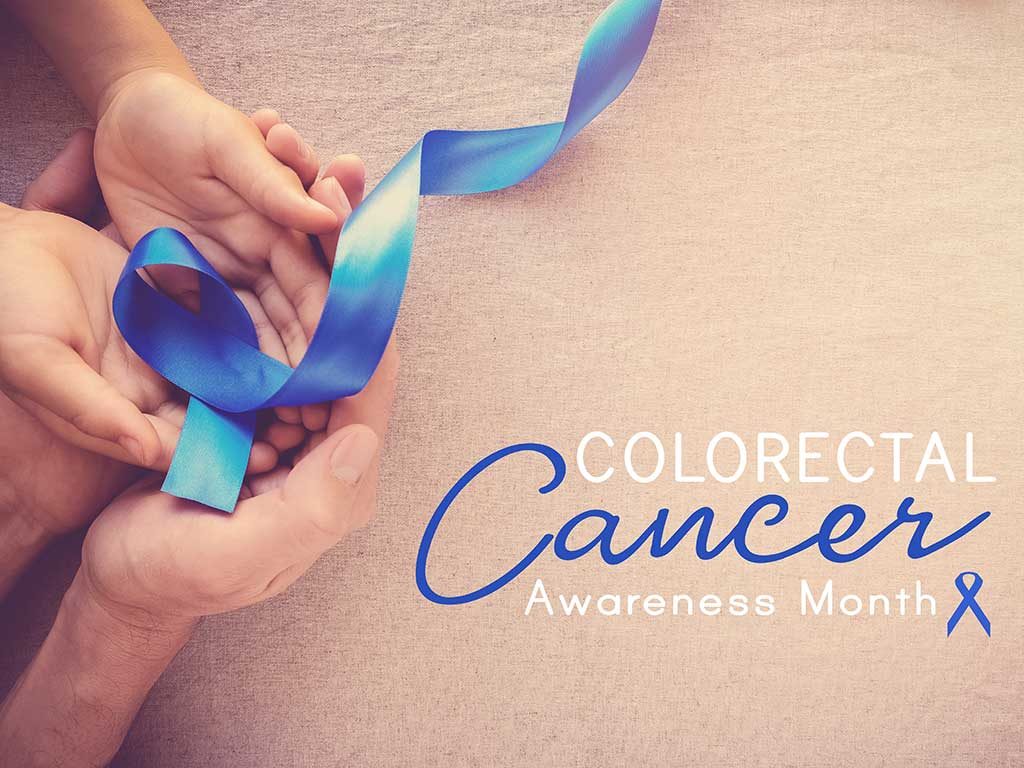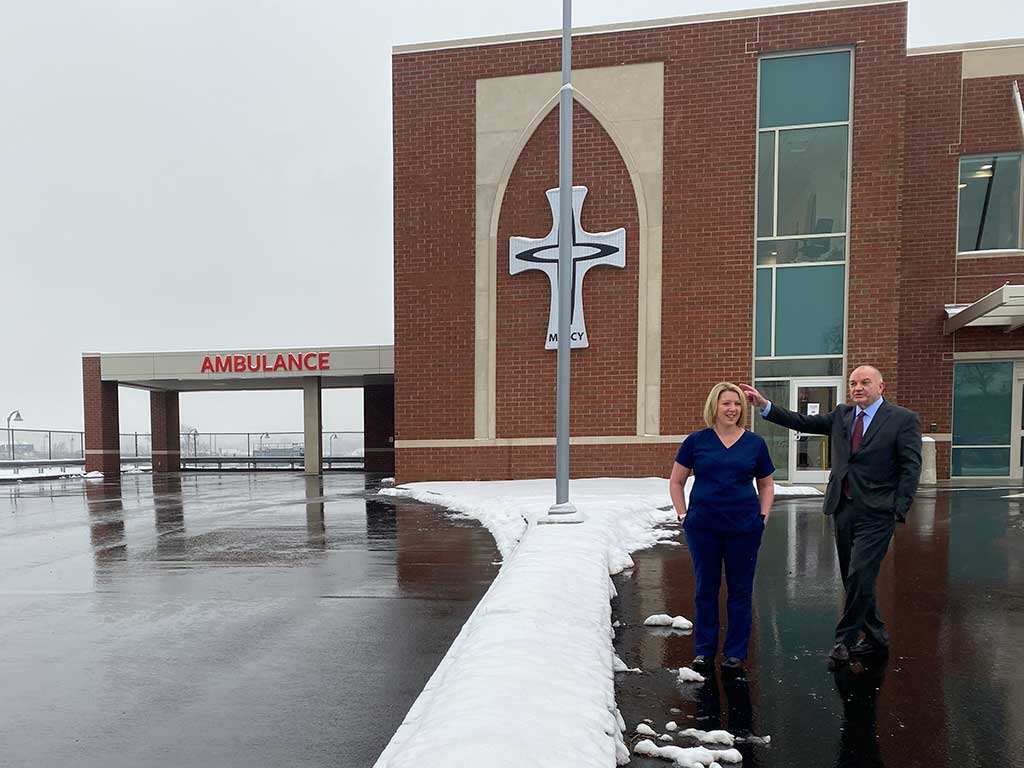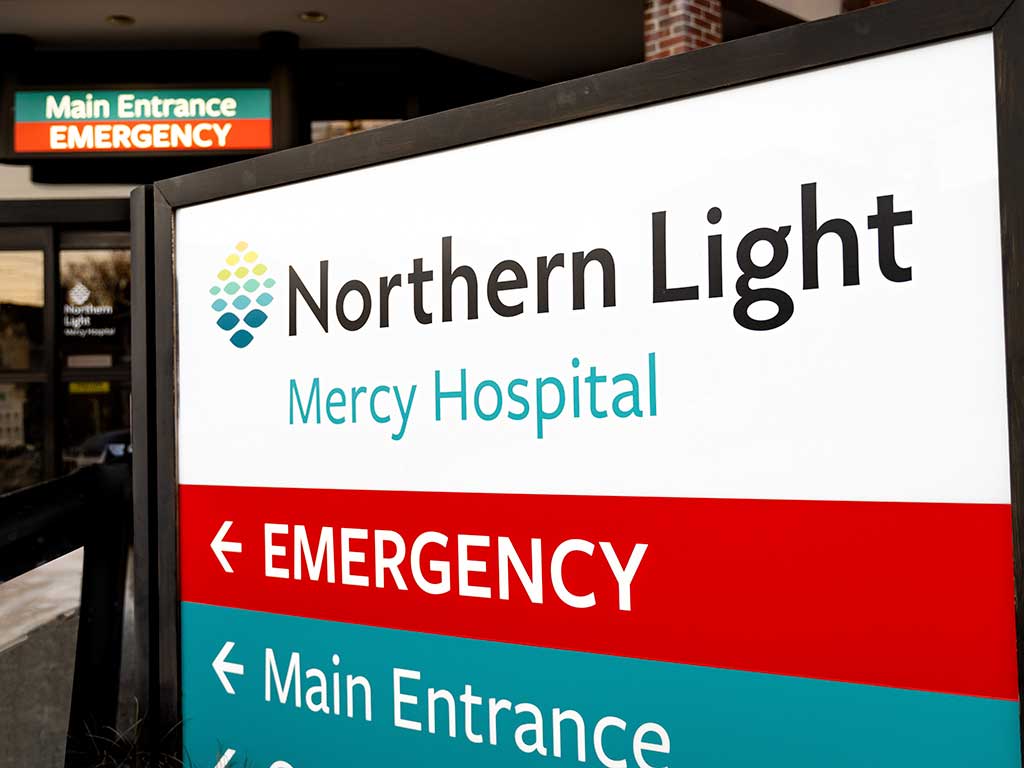March is Colorectal Cancer Awareness Month
By Dr. Chris Kleeman

Colon cancer is the third most common cancer and the second most deadly, killing over 50,000 Americans each year. The American Cancer Society estimates that 95,520 people will be diagnosed with colon cancer and 39,910 will be diagnosed with rectal cancer this year. About 90% of those diagnosed with colon cancer are over age 50.
March is Colorectal Cancer Awareness Month, and Dr. Chris Kleeman of Northern Light Mercy Gastroenterology answers some questions about this common disease.
What is the best way to prevent colon cancer?
Screening is the best way to prevent this deadly disease. Currently, only 60% of people get screened for colon cancer, so we have some work to do. There are a number of screening methods to consider when consulting with your primary care provider.
Colonoscopy, which is the most common type of screening, involves passing a flexible tube with a light and video camera on the end of it through the colon. This allows for the detection of cancer as well as the detection and removal of pre-cancerous growths, called polyps.
Does screening really work?
Yes, the widespread use of colonoscopy has decreased colon cancer by 3% per year for people over 50 between 2005 and 2014. The death rate from colon cancer has been slashed in half because it’s being detected at an earlier stage when it can be cured with surgery alone.
Early colon cancer does not have any symptoms in most people. This is why routine screening, starting at age 50 for most people, is so important.
What are the current recommendations for screening?
The guidelines were revised in 2017 by a task force of the three major gastrointestinal societies. Given the rising risk of colon cancer in people under 50, the American Cancer Society now gives a qualified recommendation to begin colon cancer screening at age 45 in people of average risk. While there are a number of tests that are effective at detecting cancer, only colonoscopy permits the detection and removal of pre-cancerous growths before they become cancer.

What are the risk factors for colon cancer?
Colon cancer affects men and women equally. The average person’s lifetime risk of colon cancer is 4.5%. Several factors can increase this risk, particularly race and family history. African Americans have a 20% higher rate of colon cancer and a 40% higher chance of dying from it. Therefore, we typically start routine screening earlier at age 45. People with a family history of colon cancer in a first degree relative have a significantly higher risk of colon cancer and should be screened at age 40 or ten years before their relative was diagnosed.
Some other risk factors include obesity, inactivity, smoking, high consumption of red meat, low calcium intake, moderate to heavy alcohol use, and low intake of fruits and vegetables. Other risk factors include certain genetic conditions and a history of inflammatory bowel disease or type 2 diabetes.
What should I do next?
Something we can all do is to address the factors that may increase our risk, such as diet and lifestyle changes. I also recommend that people speak with their primary care provider about their personal risk for colon cancer to determine the most appropriate screening plan.
Content provided by Northern Light Mercy Hospital.





